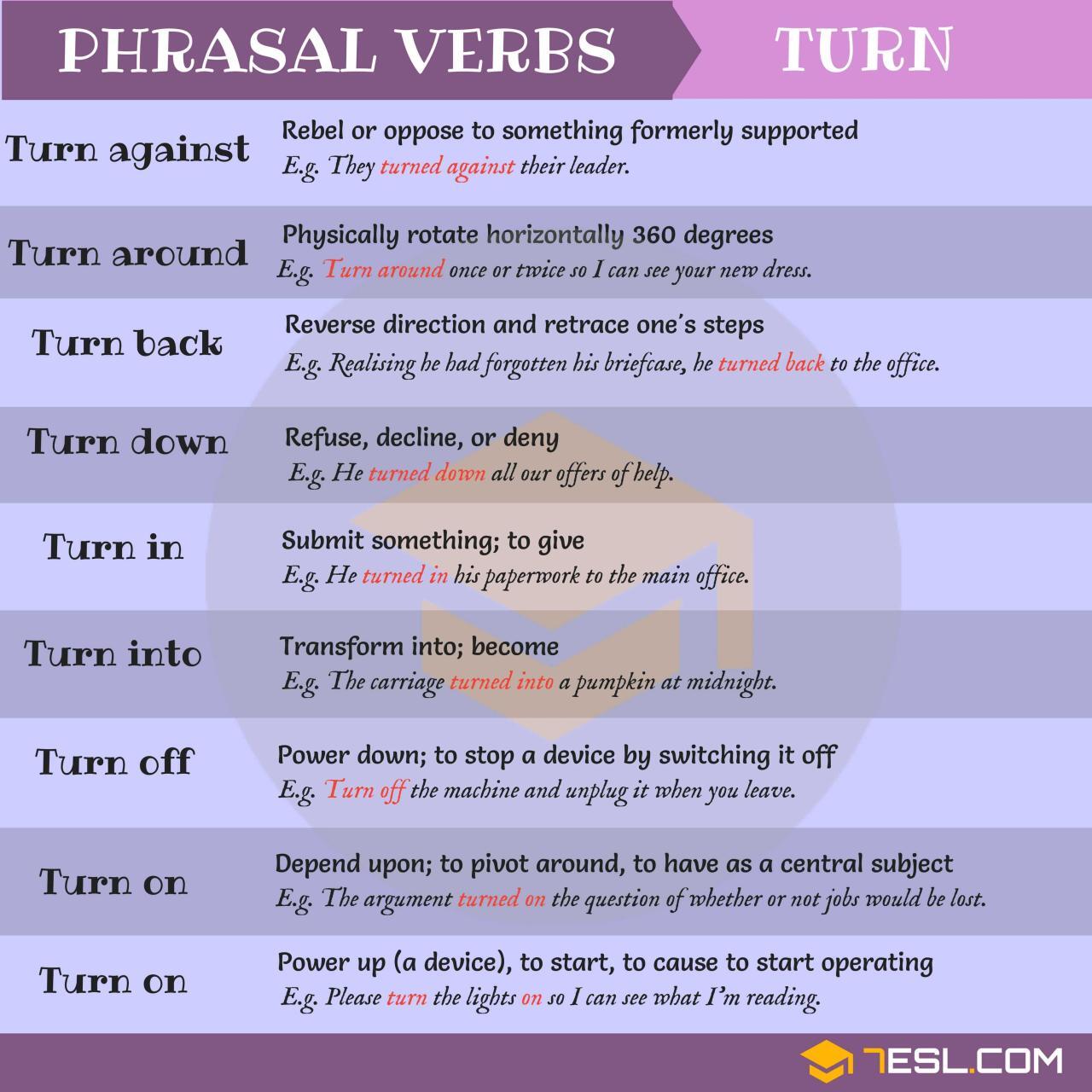Navigating the delicate process of declining a job offer is an essential skill for any professional. It’s not just about saying no; it’s about doing so with grace, respect, and a strategic eye toward future opportunities. Mastering this art ensures that your professional relationships remain intact, and perhaps even strengthened, for years to come.
This guide will equip you with the knowledge and tools to effectively communicate your decision, understand the nuances of professional etiquette, and strategically position yourself for potential roles down the line. We will explore the importance of maintaining a positive rapport, crafting polite rejection messages, and understanding the optimal timing and delivery methods for your response.
Understanding the Nuance of Declining an Offer

Declining a job offer is a delicate yet crucial professional interaction. It’s not simply about saying “no”; it’s about how you say “no” and the lasting impression you leave behind. A well-handled rejection can transform a potentially negative experience into an opportunity for future collaboration or even a different role down the line. This process requires a blend of honesty, respect, and strategic communication to ensure that professional bridges are strengthened, not burned.Maintaining a positive professional relationship when declining a job offer is paramount.
In today’s interconnected professional world, your reputation precedes you. How you handle a rejection can significantly influence how future opportunities with that company, or even through their network, might unfold. It demonstrates your professionalism, integrity, and consideration for the time and effort the employer invested in the hiring process.The potential long-term benefits of keeping communication channels open with employers are substantial and often underestimated.
A politely declined offer today could very well lead to a more suitable position or a different type of engagement tomorrow. Companies often maintain talent pipelines, and by leaving a positive impression, you position yourself favorably for future openings that align better with your evolving career goals. This proactive approach to relationship management can be a significant asset throughout your career.Ethical considerations are fundamental to turning down an offer gracefully.
This involves being truthful about your reasons for declining without oversharing or being unnecessarily critical. It also means acting promptly once you’ve made your decision, respecting the employer’s need to move forward with their hiring process. Honesty, transparency, and courtesy are the cornerstones of ethical professional conduct, ensuring that both parties feel respected and valued, regardless of the outcome.
Maintaining Professionalism in Rejection
When declining a job offer, the manner in which you communicate your decision is as important as the decision itself. A professional approach ensures that you uphold your reputation and leave the door open for future interactions. This involves several key elements that contribute to a positive and respectful interaction.
- Timeliness: Respond as soon as you have made a firm decision. Delaying your response can be disrespectful of the employer’s time and their need to fill the position.
- Gratitude: Express sincere thanks for the offer and the time the hiring team invested in interviewing you. Acknowledge their effort and the opportunity presented.
- Clarity: State your decision clearly and unequivocally. Avoid ambiguity that might lead the employer to believe there is still a possibility of acceptance.
- Conciseness: While providing a brief reason can be helpful, avoid lengthy explanations or justifications. Keep your message focused and to the point.
- Professional Tone: Maintain a polite, respectful, and positive tone throughout your communication, whether it’s via email or phone call.
The Strategic Value of Open Communication Channels
Keeping communication channels open with potential employers, even after declining an offer, offers significant strategic advantages for your career development. This foresight can lead to unexpected and beneficial opportunities down the line, transforming a seemingly closed door into a pathway for future engagement.
“The professional network is a dynamic ecosystem; a polite ‘no’ today can echo as a valuable ‘yes’ tomorrow.”
The benefits of maintaining these connections include:
- Future Opportunities: Companies often have ongoing needs and may have other roles that become available later, which might be a better fit for your skills and aspirations. By leaving a positive impression, you increase the likelihood of being considered for these future openings. For instance, a candidate who declined a project management role due to a desire for more strategic oversight might be contacted when a senior strategic planner position opens up.
- Industry Insights: Staying connected allows you to gain valuable insights into industry trends, company developments, and the broader job market. This information can be crucial for making informed career decisions.
- Referral Potential: A positive interaction can lead to valuable referrals. If the company you declined later encounters a role that is a perfect match for your profile, they might reach out directly or recommend you to a colleague within their network.
- Networking Growth: Each professional interaction, even a rejection, expands your network. Maintaining these connections can lead to unexpected collaborations, mentorship opportunities, or introductions to key individuals in your field.
Ethical Imperatives in Declining an Offer
The ethical considerations surrounding the act of declining a job offer are rooted in principles of respect, honesty, and integrity. Adhering to these principles ensures that you conduct yourself with professionalism and contribute to a positive employment ecosystem.
- Honesty Without Oversharing: Be truthful about your reasons for declining, but avoid unnecessary details that could be perceived as critical or unprofessional. For example, instead of detailing every perceived flaw in the role, a simple statement like “I’ve decided to pursue an opportunity that more closely aligns with my long-term career goals” is sufficient and ethical.
- Respect for Time and Resources: The hiring process involves significant investment from the employer. Ethically, you owe them prompt notification of your decision to allow them to pursue other candidates efficiently. This respects their time and financial resources.
- Avoiding Misrepresentation: Do not accept an offer with the intention of reneging later, or use an offer as leverage without genuine consideration. This is a breach of professional ethics and can severely damage your credibility.
- Maintaining Confidentiality: While you may discuss your career decisions with trusted advisors, avoid disclosing sensitive or proprietary information about the company or the offer itself to external parties.
Timing and Delivery of the Rejection

Crafting a polite and professional rejection of a job offer is a delicate art. While the core message is straightforward, the timing and method of delivery significantly influence how your decision is perceived and can impact future professional relationships. A well-timed and thoughtfully delivered rejection demonstrates respect for the employer’s time and effort, fostering goodwill even as you decline their proposal.Communicating your decision promptly after receiving an offer is crucial.
Delaying can create uncertainty for the hiring team and potentially cause them to miss out on other strong candidates. Therefore, establishing a clear timeline for your response and choosing the most appropriate channel for delivery are key components of a successful job offer rejection.
Establishing a Response Timeline
A swift yet considered response is paramount when declining a job offer. Allowing excessive time to pass after receiving an offer can be detrimental to both your professional reputation and the employer’s hiring process. It’s important to set internal deadlines to ensure a timely and respectful communication.The ideal timeframe to respond to a job offer is typically within 24 to 72 hours of receiving it, assuming you have all the necessary information to make a decision.
However, if the offer letter itself specifies a deadline for acceptance, you must adhere to that timeframe. If you require additional time to deliberate, it is professional to communicate this need promptly to the hiring manager, requesting a short extension.
For example, if you receive an offer on a Friday afternoon and need to discuss it with your family or consult with a mentor, it is advisable to send a brief email acknowledging the offer and stating your intention to respond by a specific date, such as Monday or Tuesday of the following week. This proactive communication manages expectations and shows courtesy.
Methods for Delivering the Rejection
The manner in which you communicate your rejection can leave a lasting impression. Prioritizing direct communication channels ensures that your message is received clearly and respectfully, minimizing any potential for misinterpretation.The most effective methods for delivering a rejection are those that allow for a personal touch and immediate clarification. While less direct methods might seem easier, they can often be perceived as less considerate.
- Phone Call: This is often considered the most professional and respectful method, especially for positions that involved multiple interview rounds or a significant personal connection with the hiring team. A phone call allows for a more personal tone, the opportunity to express gratitude directly, and to answer any immediate questions the recruiter might have.
- Email: A well-crafted email is a suitable alternative, particularly if a phone call is not feasible or if the initial offer was extended primarily via email. It provides a written record of your decision and allows you to carefully articulate your message.
Communication Channel Considerations
Each communication channel for declining a job offer has its own advantages and disadvantages. Selecting the right channel depends on the nature of the offer, the relationship you’ve developed with the hiring team, and your personal comfort level.
Consider the following pros and cons of different communication methods:
| Channel | Pros | Cons |
|---|---|---|
| Phone Call | – Highly personal and respectful. – Allows for immediate dialogue and clarification. – Conveys genuine gratitude and professionalism. – Can help maintain a strong professional relationship. |
– May be difficult to schedule. – Can feel more confrontational for some. – Lacks a written record unless followed up by email. |
| – Provides a written record. – Allows for careful wording and proofreading. – Convenient and can be sent at any time. – Less pressure for an immediate verbal response. |
– Can feel impersonal. – Risk of misinterpretation if tone is not carefully managed. – May not be seen immediately by the intended recipient. |
When in doubt, a phone call followed by a concise confirmation email is often the most robust approach. This combines the personal touch of a verbal conversation with the clarity and record-keeping of written communication.
Explaining Your Decision (Optional but Strategic)
While a simple “thank you for the offer, but I must decline” is often sufficient, providing a brief, professional explanation can be a strategic move. It demonstrates respect for the employer’s time and effort, and can leave a more positive and memorable impression, thus keeping the door open for future opportunities. The key is to be concise, honest, and to frame your reasons in a way that doesn’t burn bridges.The decision to explain your reasoning should be carefully considered.
In some situations, a detailed explanation is unnecessary and could even be counterproductive. However, when done thoughtfully, it can foster goodwill and provide valuable feedback to the employer. It’s important to tailor your explanation to the specific context of the offer and your relationship with the company.
Professional Reasons for Declining
When choosing to explain your decision, focus on professional and objective reasons. These explanations are generally well-received and do not reflect negatively on the employer or your own judgment. They highlight that your decision is based on a careful evaluation of your career path and priorities.
- Accepting Another Offer: This is a common and perfectly acceptable reason. You can state that you have accepted another position that is a better fit for your current career goals or offers a unique opportunity. For instance, “Thank you again for the generous offer. I have decided to accept another position that aligns more closely with my long-term career aspirations in [specific field].”
- Better Alignment with Career Goals: You might have received or are pursuing an opportunity that offers more direct experience in an area you wish to develop. Example: “After careful consideration, I’ve decided to pursue a role that offers a more specialized focus on [specific skill or industry], which is a key area of development for me at this stage of my career.”
- Compensation or Benefits Package: While sensitive, if the compensation or benefits are significantly below market value or your expectations, you can allude to this without being demanding. A subtle approach is best. Example: “While I appreciate the offer, I’ve decided to move forward with an opportunity that better meets my current financial and benefits requirements.”
- Location or Commute: If the logistical aspects of the role are a significant concern, this can be a valid reason. Example: “The role is very appealing, but the logistical considerations of the commute have led me to explore opportunities closer to my home.”
- Company Culture or Role Fit: If, after further reflection or discussion, you feel the role or company culture isn’t the right long-term fit, you can express this professionally. Example: “Upon further reflection, I believe the day-to-day responsibilities of this role may not be the ideal long-term match for my skill set and preferred working style.”
Contextual Approaches to Explaining Your Decision
The best way to explain your decision depends heavily on the specific circumstances of the job offer and your interactions with the hiring team. A nuanced approach ensures your message is received positively.
For a Highly Desired Role with Minor Drawbacks
If the role was very attractive but had one or two specific concerns, you can highlight the positives while gently mentioning the deciding factor. This shows you were seriously considering the offer and valued the opportunity.
“I was very impressed with [specific aspect of the role or company], and I truly appreciate the time you invested in me. However, I’ve decided to pursue a different path that offers a more direct alignment with my immediate professional development goals.”
For an Offer Received Quickly After Interviewing
If the offer came very rapidly, you might not have had sufficient time for thorough due diligence or comparison. In such cases, you can be upfront about needing more time or having other processes in motion.
“Thank you for extending the offer so promptly. I am still in the process of evaluating a few opportunities, and I need a bit more time to make a decision that is best for my career.” (Note: This is more of a delaying tactic than a decline, but can lead to a decline if another offer is better.) If you are declining, you might say: “While I appreciate the swift offer, I have decided to accept another opportunity that I believe is a more suitable fit for my current career trajectory.”
For an Offer from a Company with a Strong Future Potential
If you are declining an offer from a company you admire and hope to work with in the future, express your continued interest in the company.
“I have a great deal of respect for [Company Name] and its work in [industry/area]. While this particular opportunity isn’t the right fit for me at this moment, I would be very interested in staying connected and would welcome the chance to explore future possibilities should they arise.”
Maintaining Future Opportunities

Declining a job offer is not merely an endpoint; it’s an opportunity to cultivate a professional relationship that could benefit you in the future. By strategically managing your exit, you can ensure that the door remains open for potential roles, collaborations, or even mentorship. This section will guide you through the essential steps to foster goodwill and keep the lines of communication open with a prospective employer.The key to maintaining future opportunities lies in demonstrating professionalism, respect, and genuine interest, even as you decline their immediate offer.
This involves proactive communication and a thoughtful approach to preserving the connection.
Actions to Foster Goodwill After Declining
It is crucial to take deliberate steps after turning down a job offer to ensure that the employer views your decision positively and remains open to future engagement. These actions reinforce your professionalism and commitment to maintaining strong professional relationships.
- Send a follow-up thank-you note or email within 24-48 hours of declining. Reiterate your appreciation for their time and the offer, and briefly mention something specific you admired about the company or the role.
- Connect with the hiring manager or recruiter on professional networking platforms like LinkedIn. This provides a visible and ongoing connection.
- If appropriate, offer to provide a reference for another candidate if you know someone suitable, demonstrating your collegiality.
- Share positive feedback about the interview process or the team you met with, if genuine. This can leave a lasting positive impression.
Expressing Continued Interest
Clearly articulating your ongoing interest in the company or its industry is vital for keeping future doors open. This shows that your decision was specific to the current opportunity, not a reflection of your overall perception of the organization.
- In your rejection communication, explicitly state your continued admiration for the company’s mission, values, or recent achievements.
- Mention specific areas within the company or industry that genuinely excite you and where you see yourself contributing in the future. For instance, “I’ve been particularly impressed with [Company Name]’s recent work in sustainable technology, and it’s an area I remain very passionate about.”
- If there’s a specific department or type of role you’d be interested in later, you can subtly hint at it. For example, “While this particular role wasn’t the perfect fit at this time, I’ll be following [Company Name]’s progress in [specific area] with great interest.”
Responding to Employer Follow-Up
Should the employer reach out again regarding your decision, it’s important to respond promptly and professionally. This demonstrates respect for their continued interest and provides an opportunity to reinforce your earlier communication.
- Acknowledge their follow-up message promptly.
- Reiterate your original reasons for declining in a concise and polite manner, without over-explaining or becoming defensive.
- If new information has emerged that might make the role more appealing, you can briefly mention it, but avoid sounding opportunistic.
- If they are inquiring about your future availability or interest, express your openness to future opportunities that might be a better alignment. For example, “I appreciate you checking in. My situation remains the same, but I would certainly be open to discussing future roles at [Company Name] should a more suitable opportunity arise.”
Professional Networking Etiquette for Maintaining Connections
Maintaining professional connections requires consistent effort and adherence to established etiquette. These practices ensure that your network remains robust and supportive over time.
Building and nurturing professional relationships is an ongoing process. Engaging thoughtfully and consistently will help you maintain a strong network that can provide support, insights, and future opportunities.
- Be Responsive: Reply to messages and requests in a timely manner, even if it’s just to acknowledge receipt and promise a more detailed response later.
- Offer Value: Share relevant articles, insights, or opportunities with your network. Be a giver, not just a taker.
- Personalize Communications: Avoid generic messages. Reference past conversations or shared interests to make your outreach more meaningful.
- Stay Updated: Periodically check the professional profiles of your connections to stay informed about their career moves and achievements.
- Be Authentic: Let your genuine personality and professional values shine through in your interactions.
- Respect Boundaries: Be mindful of people’s time and avoid excessive or unsolicited contact.
- Follow Up Appropriately: If you promise to connect someone or share information, do so promptly.
- Celebrate Successes: Congratulate your connections on their achievements, such as promotions or new roles.
What to Avoid When Declining
When extending a professional courtesy by declining a job offer, it’s crucial to navigate the communication with care. Certain missteps can inadvertently damage your reputation and close doors that might otherwise remain open. Understanding these common pitfalls is key to ensuring your rejection is handled gracefully and effectively.Common mistakes often stem from a lack of foresight regarding the long-term impact of your communication.
Being mindful of your tone, the specifics of your explanation, and the timeliness of your response can make a significant difference in how you are perceived by the hiring team and the organization as a whole.
Negative Impacting Phrases and Statements
Certain phrasing can unintentionally convey a lack of professionalism, disinterest, or even arrogance, leaving a lasting negative impression. It’s important to be aware of these phrases and opt for more diplomatic language.
- Using overly casual language: Phrases like “Thanks, but no thanks” or “I’m not feeling it” are too informal for a professional rejection.
- Being overly critical of the offer or company: Avoid making disparaging remarks about the salary, benefits, role, or company culture. Even if these are valid concerns, they should be communicated tactfully or omitted entirely. For instance, instead of saying “The salary is ridiculously low,” consider “After careful consideration, I’ve determined that the compensation package is not aligned with my current career objectives and market value.”
- Expressing disinterest in the role or company without a clear reason: A vague statement like “I’ve decided to go in a different direction” can be perceived as dismissive.
- Making demands or counter-offers at this stage: If you’ve already decided to decline, don’t use the rejection as an opportunity to negotiate for a different role or a significantly improved offer, unless that’s explicitly your intention and you’ve already had preliminary discussions.
- Burning bridges with blunt or rude language: Phrases such as “You’re not what I’m looking for” or “I found a better opportunity” are unnecessarily harsh.
Implications of Delaying Your Response or Being Vague
Procrastinating your decision or providing an unclear reason for declining can create significant professional inconveniences and damage your credibility. Organizations rely on timely feedback to move forward with their hiring process, and vagueness leaves them with unanswered questions.A delayed response can significantly hinder the employer’s ability to proceed with other candidates. They may have invested considerable time and resources in the interview process, and your indecision prolongs their uncertainty.
This can lead to frustration and a perception that you do not respect their time or process. Furthermore, being vague about your reasons for declining can leave the employer with a skewed understanding of their offer or recruitment process, preventing them from making necessary improvements. This lack of clarity can also lead them to believe you were not genuinely interested, which might affect future considerations should circumstances change.
“Timeliness and clarity are the cornerstones of a professional job offer rejection.”
Common Pitfalls in Declining a Job Offer
Several common mistakes can undermine your efforts to maintain a positive relationship with a potential employer. Recognizing these pitfalls is the first step toward avoiding them.
- Failing to respond at all: This is the most unprofessional approach and guarantees a negative impression.
- Not personalizing the rejection: Sending a generic, templated email without any specific reference to the role or conversation can feel impersonal and insincere.
- Over-explaining or providing too much detail: While a brief explanation is helpful, an exhaustive account of your decision-making process is unnecessary and can sometimes sound defensive.
- Ghosting the recruiter or hiring manager: This is a disrespectful practice that can have long-term repercussions on your professional network.
- Being dishonest about your reasons for declining: While you don’t need to disclose every detail, fabricating a reason can lead to complications if discovered later.
Ultimate Conclusion

In conclusion, turning down a job offer is an opportunity to demonstrate your professionalism and foresight. By approaching this task with careful consideration and a commitment to maintaining positive relationships, you can ensure that your career path remains open to exciting possibilities. Remember, a well-handled rejection can be just as valuable as a successful acceptance in building a robust and enduring professional network.